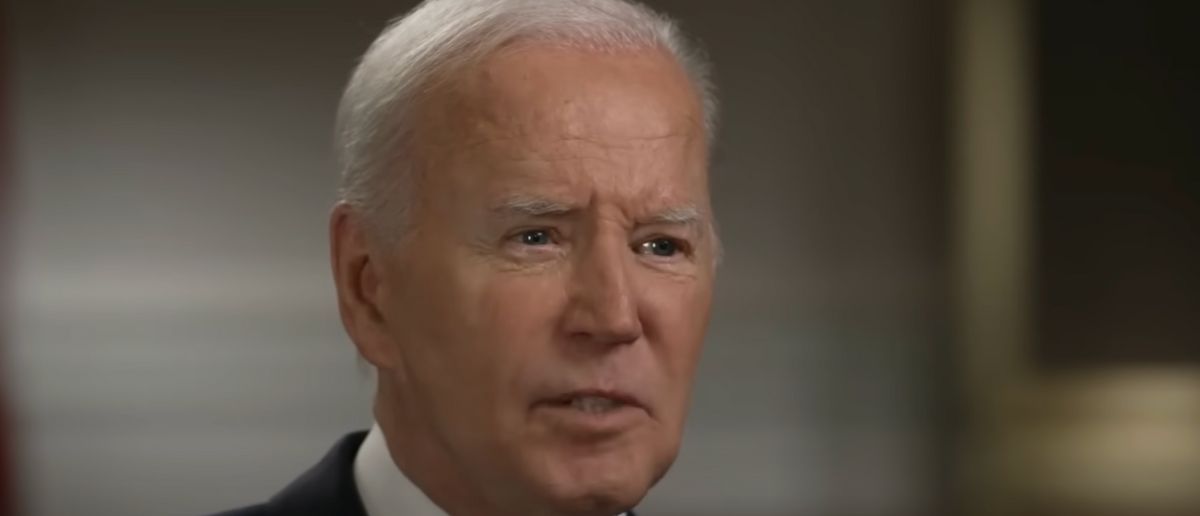
The Biden administration’s crossed the line. But there’s no turning back.
Because the Pentagon just uttered two words about Muslim terrorists that are a major red flag.
At a press briefing on Monday, Pentagon spokesman Maj. Gen. Pat Ryder stated that, despite a flurry of airstrikes targeting Houthi military assets over the weekend, the United States does not want to “completely eliminate” the capabilities of the Houthi rebels in Yemen, who are backed by Iran.
The Houthis were about to fire missiles when U.S. Central Command (CENTCOM) forces destroyed them, only hours after the United States and the United Kingdom launched a third wave of large-scale attacks against some highly hidden sites in Yemen on Saturday. On Monday, Ryder stated that the Houthis will need to determine how many missiles, launchers, drones, and related materials they are prepared to lose if they want to persist with their terrorization of the Red Sea.
“Our goal is not to completely eliminate the capabilities of Houthi forces. Our goal is to disrupt and degrade their ability to conduct these attacks,” Ryder expressed.
The Houthi terrorists have made it clear that they do not intend to stop anytime soon, making these comments from the Biden Pentagon confusing in the opinion of many military experts.
“The Yemeni Armed Forces emphasize the continuation of their military operations in the Red Sea against Israeli shipping or those heading to the ports of occupied Palestine until the siege is lifted and the aggression against the Palestinian people in the Gaza Strip is stopped,” the Houthis announced in a prepared statement this week.
In the Red Sea, the Houthis have persisted in launching risky missile and drone assaults against ships since the latest joint strikes on January 11 and January 22. In the most catastrophic incident yet, a petroleum tanker was set ablaze for hours. On more than 30 occasions, the Houthis have launched attacks against foreign maritime vessels.
“The Houthis will continue to face further consequences if they do not cease their illegal attacks,” Ryder said, calling on the group to end their attacks on commercial vessels.
That goal has been accomplished in recent assaults, he said. However, the Houthis have made it clear that they would not stop interfering with international commerce until Israel ends its conflict in Gaza with the terrorist group Hamas.
“The question is, how much of that capability they want to sacrifice to a doomed cause?” Ryder indicated. The Houthis’ plan to hinder shipping “ultimately will fail,” he declared. U.S. intentions to outlast Houthis are hinted at in Ryder’s remark.
Attacks by militias supported by Iran persist in Iraq and Syria, as well as in Yemen, where the United States and the United Kingdom have conducted combined operations on many occasions. If extremist organizations persist in their aggressive behavior, the United States will respond with counterattacks to defend its military personnel and foreign ships passing through the Red Sea.
Ryder also refused to discuss the Pentagon’s long-term goals in Iraq and Syria, instead comparing the situation there to Yemen.
Video of launches from USS GRAVELY, USS CARNEY, and USS DWIGHT D. EISENHOWER supporting strikes on Iranian-backed Houthi targets pic.twitter.com/EMSkDANoeF
— U.S. Central Command (@CENTCOM) February 4, 2024
In both Iraq and Syria, the United States keeps soldiers to assist local forces in fighting the Islamic State. “If our forces are attacked — and in this case when our forces were killed — we will take appropriate and necessary action,” Ryder said.
According to Ryder, a full-scale battle against the Iranian proxies is not in the U.S.’s plans. “To be clear, our goal is not to okay game on let’s just do this and go, you know, full scale war against Iranian proxy groups in Iraq and Syria. That’s not what we’re there for,” he claimed.
According to Ryder, CENTCOM has not yet finished tallying the fatalities and damage caused by the strikes over the weekend in both combat zones. Strikes in Iraq and Syria targeting organizations sponsored by Iran and the Islamic Revolutionary Guard Corps (IRGC) probably resulted in the deaths of some militants, he continued.
No doubt this is going to continue to be a major headache for Joe Biden and company in the months ahead. With the 2024 general election cycle just around the corner, expect international relations and national security to play a major role in who Americans want to pick as their next president.
And on that front, Biden is underwater in the general opinion of the American public right now.
Stay tuned to the DC Daily Journal.





